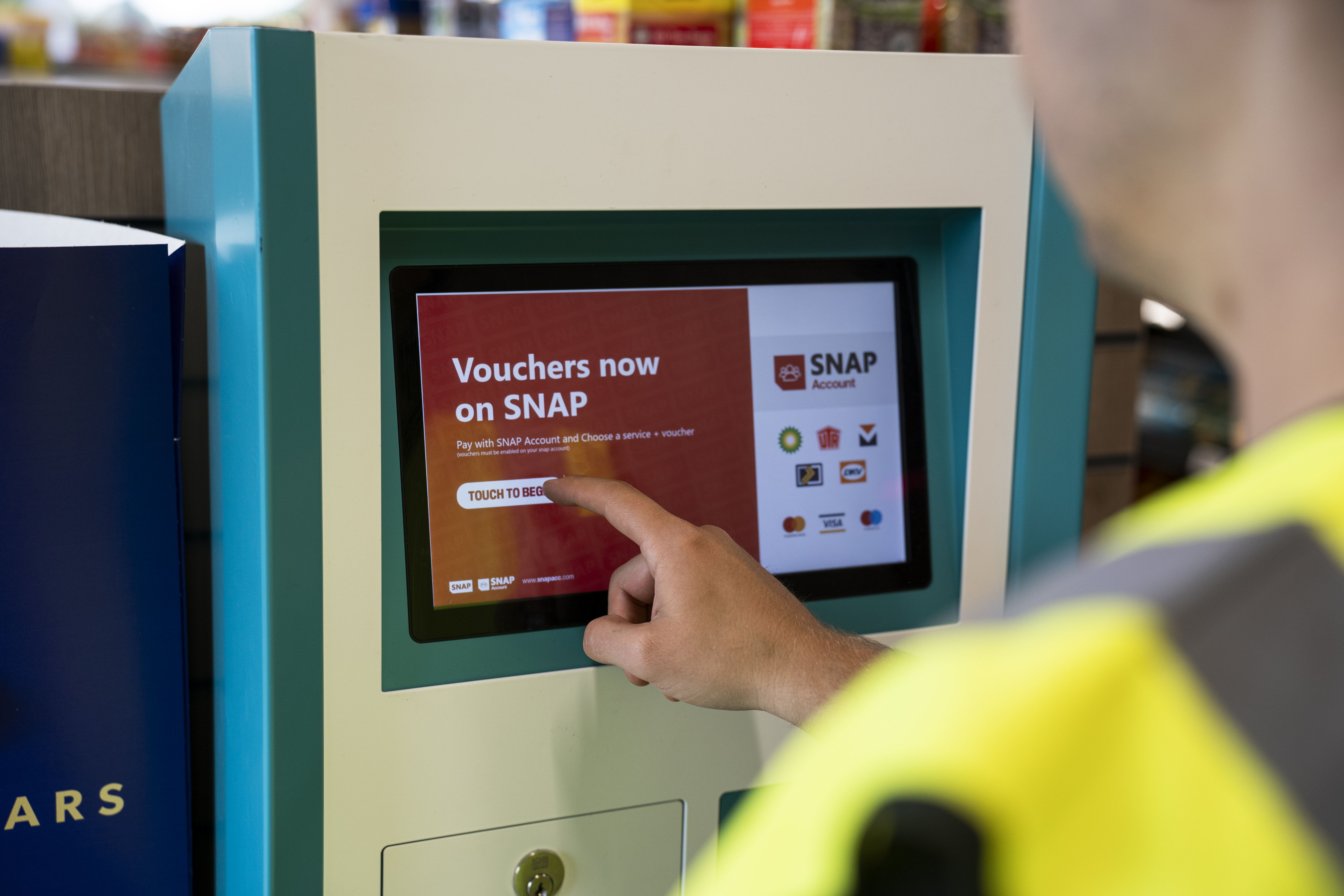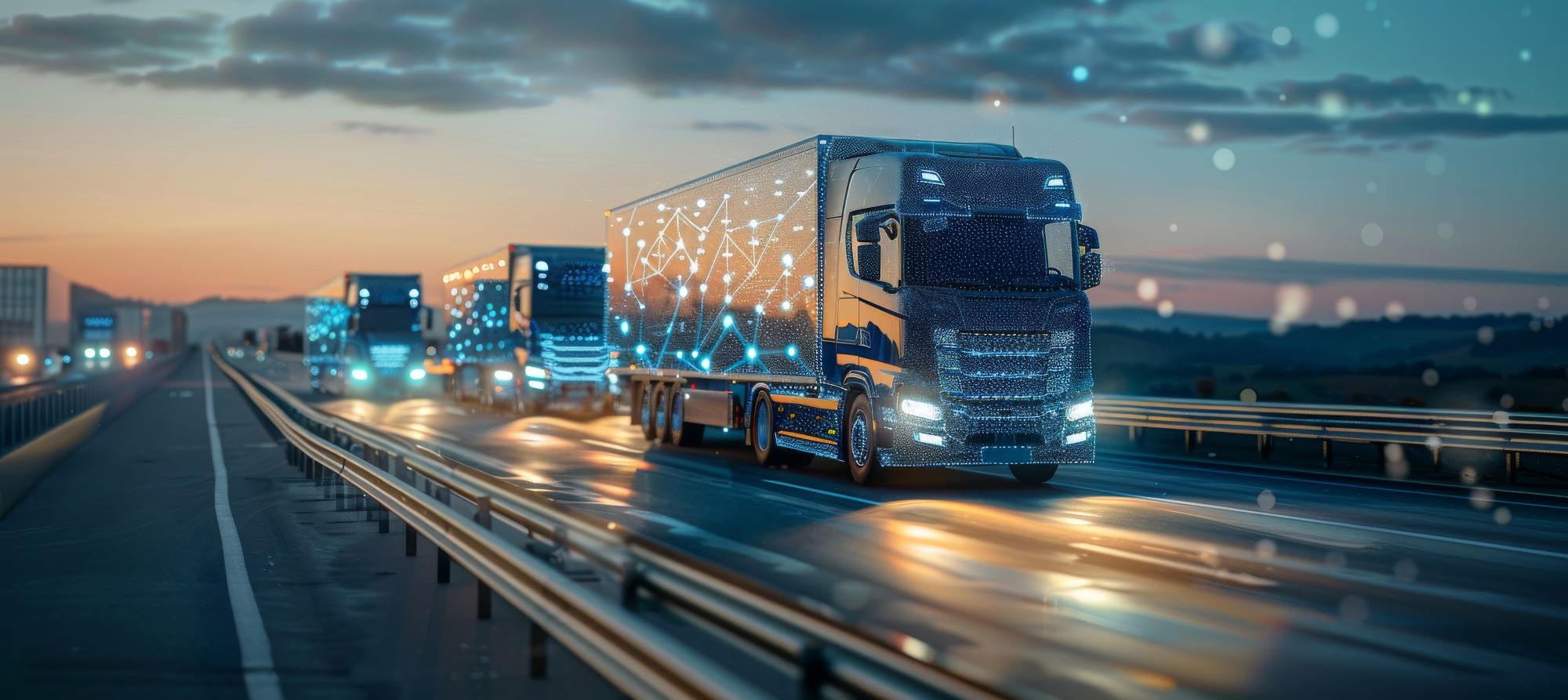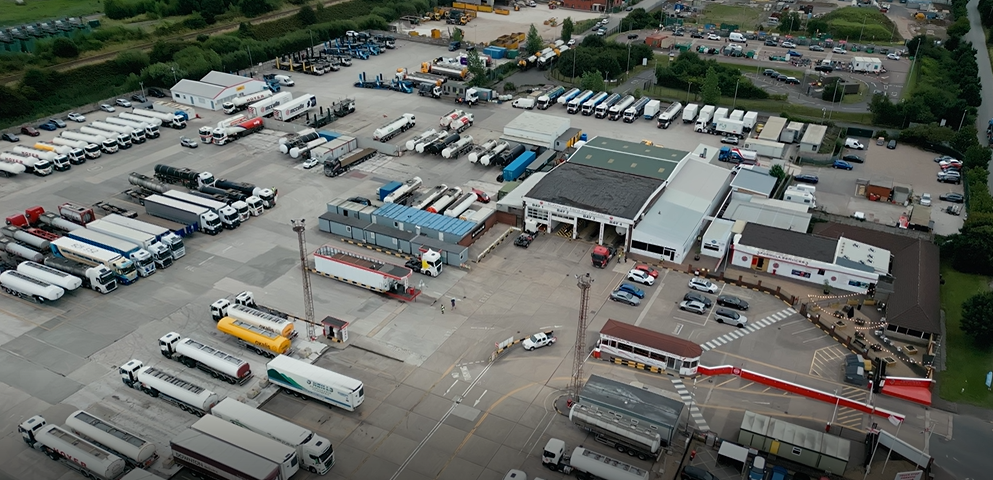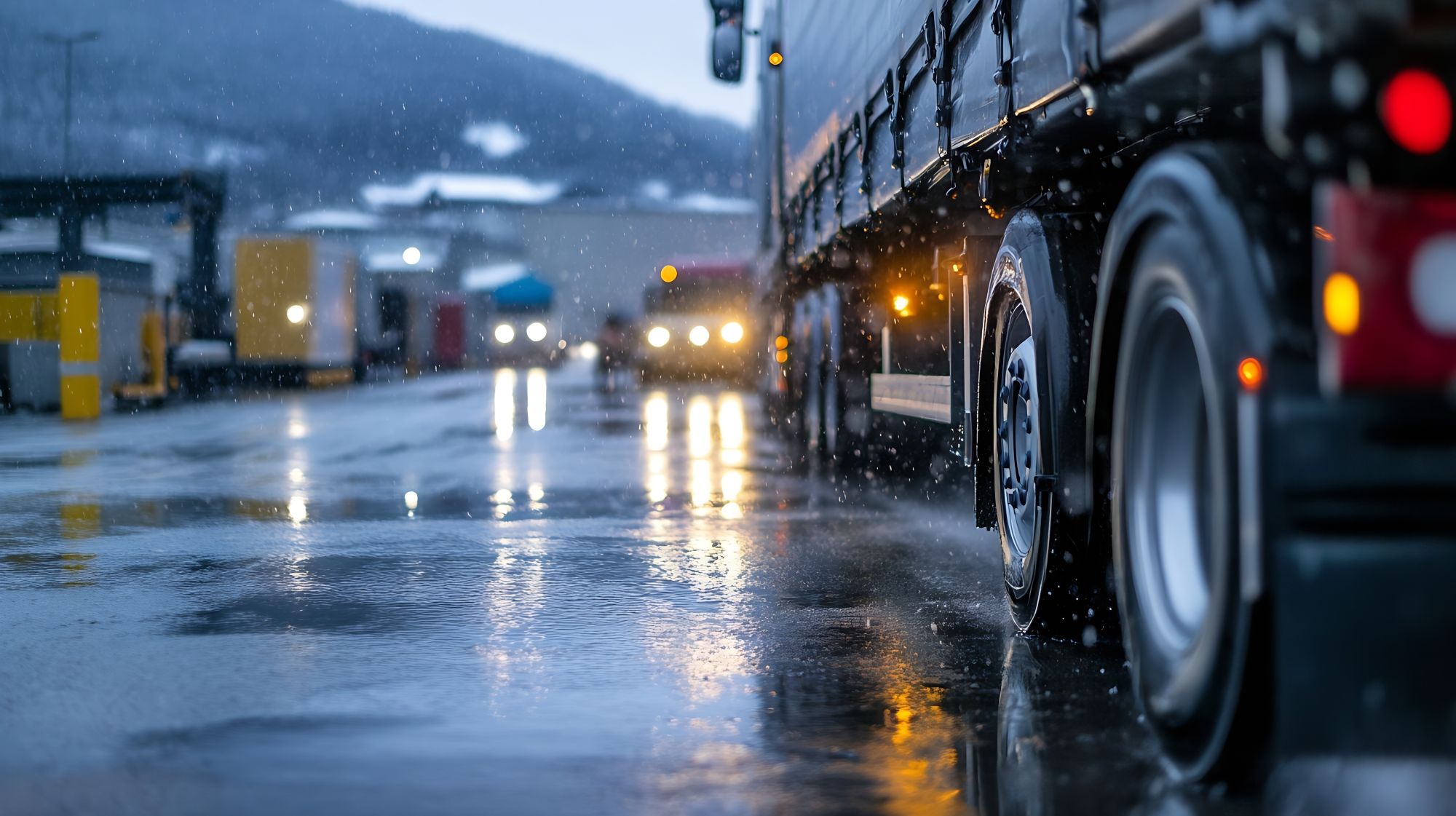
Guest
Wie SNAP die Lkw-Branche durch Technologie revolutioniert
Erstellt: 22.01.2025
•
Aktualisiert: 29.01.2025
Die Lkw-Branche befindet sich in einer technologischen Revolution - und wir bei SNAP verschieben ständig die Grenzen der Innovation, um die Sicherheit, die Effizienz und den Komfort für Fahrer und Flottenbetreiber in ganz Europa zu verbessern und dabei neue Standards zu setzen.
Das Herzstück unseres Angebots? Unser umfassender digitaler Marktplatz - eine Plattform aus einer Hand, die die Verwaltung von Betrieben neu definiert. Lesen Sie weiter und erfahren Sie, wie...
Digitaler Marktplatz
Dabei gibt es zwei wesentliche Elemente.
intruck
[intruck] (https://intruckapp.com/download/) ist ein unverzichtbares Instrument für Autofahrer, die sich auf dem riesigen europäischen Straßennetz bewegen. Es ist viel mehr als nur eine mobile App, die ihnen hilft, ihren Weg zu finden; es ist eine dynamische Ressource, die ihnen die Macht der Informationen direkt in die Hand gibt. Außerdem können sie damit Parkplätze entlang ihrer Route im Voraus buchen.
SNAP Portal
Was unsere webbasierte Plattform betrifft, so ermöglicht das innovative Tool den Flottenmanagern, Parkplätze für die Fahrer im Voraus zu buchen, was die Effizienz der Routenplanung erheblich verbessert. Durch dieses Maß an Voraussicht und Kontrolle sind wir in der Lage, [den Flottenbetrieb zu optimieren] (https://snapacc.com/newsroom/route-optimisation-with-fleet-management-software-snap-account/), Ausfallzeiten zu reduzieren und das gesamte Logistikmanagement zu verbessern.
Netzwerke ausbauen, Dienstleistungen verbessern
Unser Engagement für die Verbesserung des Lkw-Verkehrs zeigt sich in unserem rasch wachsenden Netz von Raststätten in ganz Europa. Viele dieser Standorte sind mit verbesserten Sicherheitsmerkmalen ausgestattet, um dem dringenden Bedarf an sicheren Rastplätzen für Fahrer und ihre wertvolle Fracht gerecht zu werden.
Darüber hinaus geht unser Netzwerk über das Parken hinaus - wir haben europäische [Lkw-Waschanlagen] (https://snapacc.com/newsroom/how-to-find-a-truck-wash-near-you/) integriert, was unseren ganzheitlichen Ansatz zur Erfüllung der Bedürfnisse der Fahrer auf der Straße unterstreicht. Außerdem können wir über unser Partnerunternehmen Certas Energy SNAP Fuel anbieten - damit haben Lkw-Fahrer Zugang zu vergünstigtem Tanken an deren Tankstellen, was eine weitere Ebene der Bequemlichkeit und Kosteneffizienz darstellt.

Digitale Zahlungen und Automatisierung
Wir haben auch unser digitales Zahlungssystem revolutioniert. Es macht Bargeldtransaktionen in der Branche überflüssig - kein Wunder, dass es in ganz Europa alle 13 Sekunden genutzt wird. Darüber hinaus bietet es den Fahrern mehr Sicherheit und den Flottenbetreibern ein optimiertes Kostenmanagement.
Es gibt auch Funktionen zur Automatisierung von Buchungs- und Transaktionsprozessen. Diese vereinfachen die administrativen Aufgaben sowohl für Lkw-Fahrer als auch für Flottenmanager erheblich, was nicht nur Zeit spart, sondern auch das Potenzial für menschliche Fehler reduziert - was zu effizienteren und präziseren Abläufen führt.
Die Zukunft sichern
Da wir die entscheidende Bedeutung der Sicherheit in der Branche erkannt haben, verfügen wir über eine eigene [Access & Security Division] (https://snapaccessandsecurity.com/). Sie bietet maßgeschneiderte Produkte für den Schutz von Transportgeländen, Fahrzeugen und Ladung. In einer Zeit, in der Frachtdiebstahl und Baustellensicherheit große Sorgen bereiten, ist unser proaktiver Sicherheitsansatz der Schlüssel zur Bewältigung der dringendsten Herausforderungen des Sektors.
Integration und Innovation - der SNAP-Weg
Wir werden unser technologisches Angebot weiterhin innovativ gestalten und ausbauen und sicherstellen, dass wir flexibel bleiben, indem wir unsere Dienste aktualisieren und verbessern, um den sich wandelnden Anforderungen der Branche gerecht zu werden. Darüber hinaus werden wir bei der Erweiterung unseres Netzwerks über verschiedene Länder hinweg sicherstellen, dass wir die unterschiedlichen regulatorischen Rahmenbedingungen und Infrastrukturunterschiede berücksichtigen - so wie wir es bei unserer jüngsten Expansion nach Österreich, Bulgarien, Tschechien, Griechenland, Ungarn, Italien und Rumänien getan haben.
Indem wir die Probleme der Branche mit Hilfe von Technologie angehen, werden wir auch bestehende Prozesse verbessern und die Zukunft der Logistik neu gestalten - und so unsere Position als führendes Unternehmen im Bereich Tech Trucking weiter festigen.
Möchten Sie mehr über SNAP und unsere Arbeit erfahren? Nehmen Sie Kontakt auf unter +44 (0)1603 777242.



